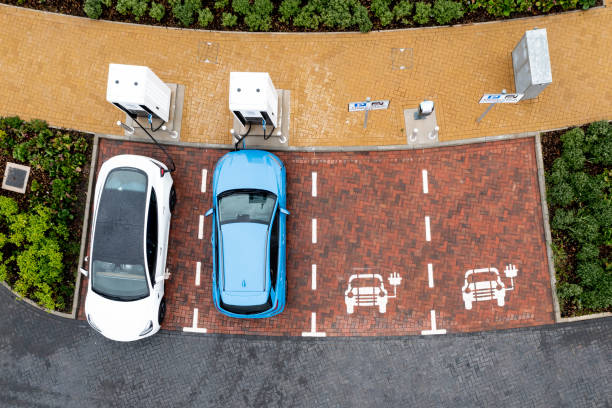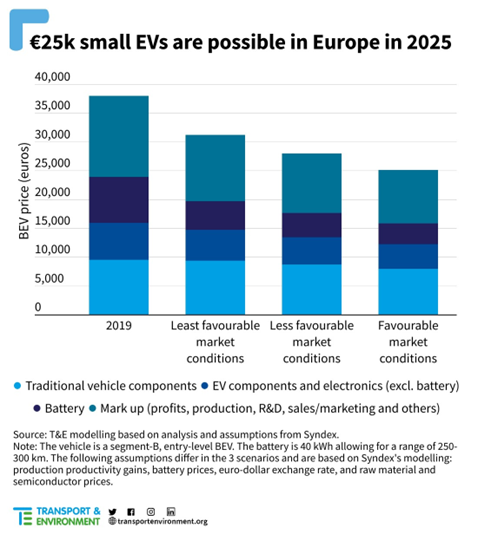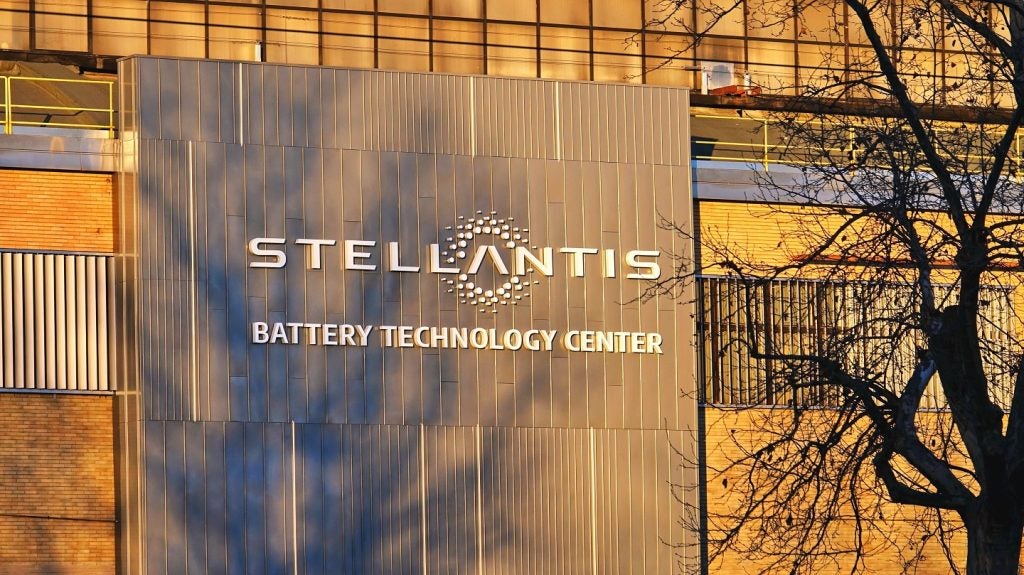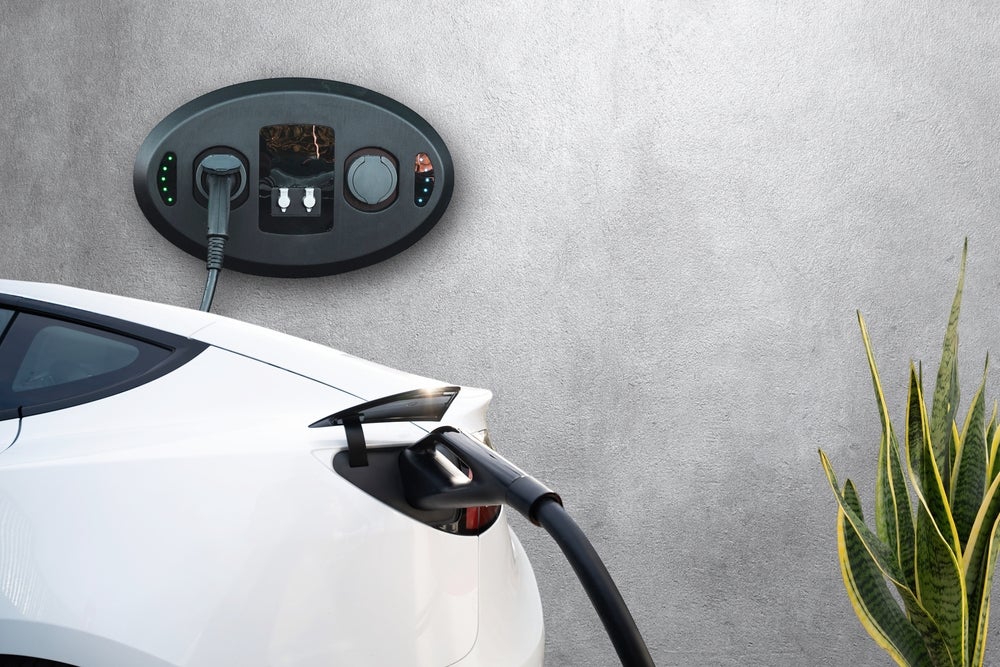
Carmakers can sell small electric cars made in Europe for €25,000 while making a profit, according to new research by T&E.
Falling production costs and battery prices would make mass-market B-segment vehicles feasible to electrify by 2025, according to the study by Transport & Environment (T&E), based on analysis by the Syndex consultancy.
T&E said the availability of smaller, more affordable EVs could be a game changer for mass adoption of electric cars and will be crucial if European carmakers are to hold off the challenge of Chinese companies surging into Europe.

This would see battery costs fall to $100 per kWh, in line with forecasts by BloombergNEF and others. The report factors in other direct cost reductions while keeping broad industry expectations around indirect costs and mark-ups. The B-segment vehicle would have a 40 kWh LFP battery and a range of 250-300 km.
Julia Poliscanova, senior director for vehicles and e-mobility supply chains at T&E, said: “Survey after survey has shown prices are one of the biggest barriers to drivers going electric. The €25k small BEV will be a game changer for public adoption of electric cars. Bringing those models to market quickly and in volumes is crucial for European manufacturers to compete with Chinese rivals already offering cheap, small electric cars here.”
A new survey shows that the arrival of more affordable, small electric cars would hasten the uptake of zero-emission cars in Europe. One-quarter (25%) of new car buyers already intend to buy an electric car in the next year, according to a YouGov poll for T&E in France, Germany, Italy, Spain, Poland and the UK.
However, if you now consider the option of a small €25,000 electric car, the share of new car buyers willing to buy a battery electric model increases to 35%. This would equate to an additional 1 million EVs being sold in Europe annually, replacing combustion equivalents.
However, the big six European carmakers have abandoned small affordable cars in pursuit of profits that have grown far faster than inflation, says T&E. Between 2019 and 2022 their net profit per vehicle jumped from between -€40 to €1,920 to €510 to €8,940, adjusted for inflation, the report finds.
This was delivered by prioritising sales of larger, more lucrative SUVs which today account for over half (53%) of all vehicles sold in Europe. Electric SUVs, which consume more electricity and raw materials, accounted for 51% of electric car sales in 2022.

T&E said lawmakers need to create the conditions for car companies to prioritise small electric cars, which are better for the environment, low-income households and the competitiveness of the European auto industry.
How well do you really know your competitors?
Access the most comprehensive Company Profiles on the market, powered by GlobalData. Save hours of research. Gain competitive edge.

Thank you!
Your download email will arrive shortly
Not ready to buy yet? Download a free sample
We are confident about the unique quality of our Company Profiles. However, we want you to make the most beneficial decision for your business, so we offer a free sample that you can download by submitting the below form
By GlobalDataThe company called for a joined-up strategy of EV efficiency rules at the EU level, vehicle taxes and subsidies at the national level that penalise weight, and higher parking charges for SUVs at the local level.
Julia Poliscanova said: “More car buyers will go electric if small affordable BEVs are available. But right now carmakers are happy to cream the profits off large SUVs which are too expensive for many low-income households. Lawmakers need to step in with efficiency standards, taxes, reform of subsidies and other measures that tip the balance in favour of small, affordable electric cars and ordinary people.”
T&E is a non-profit organisation that receives funding from the Climate Imperative Foundation, The European Climate Foundation, the Schwab Charitable Fund, the European Commission, the Quadrature Climate Foundation, and the Norwegian Agency for Development Cooperation, amongst other organisations.







